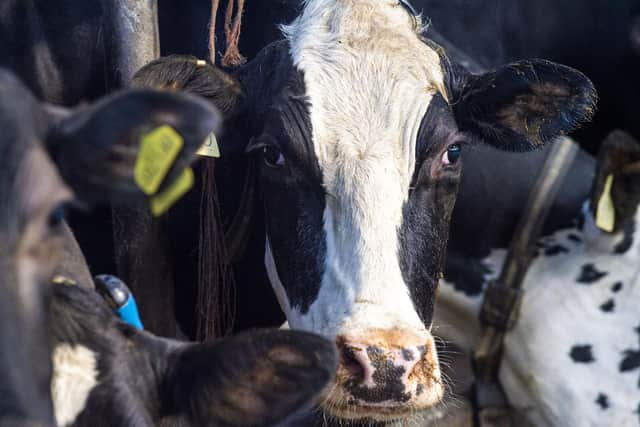Farming: Devil will be in the detail of Australia trade deal


Strong and polarised opinion has been to the fore in the wider media coverage, with predictions of either untold benefits or devastating impacts depending on the respective viewpoints – but yesterday the Agricultural and Horticultural Development Board (AHDB) attempted to look beyond the rhetoric and provide a less emotional assessment of the implications.
The organisation’s head of strategic insight, David Swales, pointed out that the deal was the latest in a long list of trade deals the UK Government has signed over the past year, with countries ranging from Albania to Zimbabwe:
Advertisement
Hide AdAdvertisement
Hide Ad“However, Australia is potentially much more significant for agriculture than the 67 that have gone before and I think it is likely to set a precedent going forward,” he admitted.
Swale said the previous deals had been simple rollovers of those the UK already had as part of the EU, effectively maintaining the status quo, with the agreements including strict quotas on tariff-free trade and other safeguarding measures to protect domestic producers, particularly in ‘sensitive sectors’ like beef, sheep and dairy.
“The UK-Australia deal feels very different,” said Swales, who pointed out that it was the first genuinely new trade deal which had been negotiated by the UK: “As such, it is telling that long-term quotas have disappeared and details of safeguards are thin on the ground.”
But he said that despite the talk of a 15-year transition period, to allow British farmers to adapt, the political focus had moved away from protecting UK producers towards preparing them for competition.
“Our work shows that Australia is a significant agricultural exporter, with large farms which have production systems that differ from those in the UK.”
He said this meant that Australian farm costs of production tended to be much lower than those in the UK – notably for livestock but also for grain – however tariffs meant that the exports to the UK were low.
However he said tariffs weren’t the only reason UK shelves weren’t packed with Australian goods: “Strong economic and population growth means the demand for Australian food exports closer to home – in the Asia-Pacific region – is strong and prices are good.”
As such he didn’t expect UK markets to be flooded by Australian product: “This isn’t to say there won’t be an impact, as even a modest increase in supply will have a price effect. I’m also conscious that trade shocks tend to change trade flows almost overnight, particularly when markets close.”
Advertisement
Hide AdAdvertisement
Hide AdHe also pointed out that political relations between Australia and China weren’t particularly positive at the moment – and policy decisions there could impact trade flows, leaving Australia actively pursuing other markets.
But Swale admitted that much would depend on the as-yet unknown details of the agreement – including the acceptability of some of Australia’s production standards and measures adopted to safeguard those of UK producers.
Comments
Want to join the conversation? Please or to comment on this article.